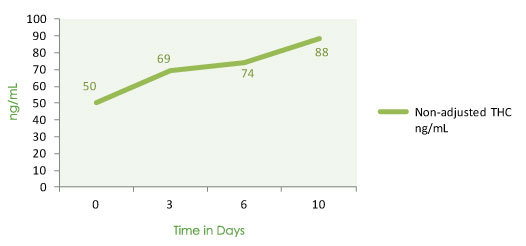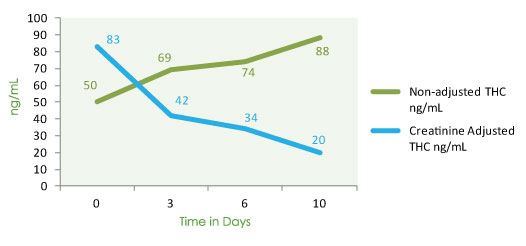Clinical Services - Pharmacist Team
Access our team of Clinical PharmacistS for Consultation
- Phone: 800.511.8492
- Fax: 401.667.0812
- Monday - Thursday: 8:00am - 8:00pm ET
- Friday: 8:00am - 6:00pm ET

listen to what our clients have to say
very patient and helpful when we call.”

helpful with questions or concerns."

and they are knowledgeable."

OUR CLINICAL SERVICES TEAM OF PHARMACISTS
REAL-TIME CLINICAL CONSULTATION
Drug testing results can be complex, and quality patient care depends on accurate interpretation.
Our clinical team of pharmacists is available Monday through Friday to review individual patient results at your convenience.
They have a 99.8% answer rate, so when you pick up the phone to call Clinical Services, you’ll get a pharmacist on the line immediately.

Extensive Pharmaceutical Knowledge
Specially trained in pharmacokinetics, pharmaceutics, and laboratory science, our clinical pharmacists are uniquely qualified to assist with drug monitoring and test result interpretation.
They stay updated on the latest literature, ensuring timely insights into emerging drug trends for effective knowledge-sharing.

Ongoing Enhancements to RESULT Reports
Using the latest clinical research on synthetic compounds, prescription medications, illicit drugs, and over-the-counter medications, our pharmacists consistently update Dominion’s CARD® and SAMM® proprietary software.
This ensures that our interpretative reports remain accurate and aligned with current clinical standards.

CLINICAL TRAINING AND EDUCATION
With remote education and training available upon request, our team of clinical pharmacists are here to educate and empower your staff with the information necessary to successfully review and interpret results.
Webinars can be tailored to meet your staff’s educational needs, and as a NAADAC Approved Education Provider, you can also earn continuing education (CE) credits while gaining essential skills.
Additionally, our pharmacists have an extensive library of educational documents available to support the education and consultation they provide. These documents contain trusted information covering an array of relevant topics.

AVAILABLE CLINICAL TRAINING classes:
THE PRINCIPLES OF URINE DRUG MONITORING
Principles of UDM
ALCOHOL AND URINE DRUG MONITORING
ALCOHOL AND URINE DRUG MONITORING
THE PRINCIPLES OF ORAL FLUID TESTING
THE PRINCIPLES OF ORAL FLUID TESTING
A LOOK AT NOTABLE DRUGS OF MISUSE
A LOOK AT NOTABLE DRUGS OF MISUSE
Training Classes are coordinated through your Sales Representative and can be held in-person at your facility, virtually or hybrid to accommodate your staff’s needs. The Clinical Services Pharmacist conducting the training will always attend virtually.
Some of these classes will also qualify for NAADAC Continuing Education (CE) credits.
To inquire about scheduling a clinical training for your clinic,
please reach out to your
Regional Sales Representative or
our Clinical Services Team at 800.511.8492


LEARN WITH US
//LEARN MORE
WHAT IS ELIMINATION MONITORING?
Factors that must be considered in the interpretation of drug concentration in urine include individual differences in the rates of metabolism, absorption, distribution, urine pH, dosage intervals, dosage strength, timing of the administration of the drug in reference to the urine collection, and chronic use versus a single dose.
Because these factors complicate interpretation, no conclusions can be drawn from the concentration of the drug in the urine as to the amount of drug administered, the time since the last dose, or the degree of impairment.
However, by utilizing creatinine adjusted values one can monitor changes in drug concentrations in the urine over time. Clinicians may find these values useful with certain drugs during clinical monitoring when tracking a patient’s drug elimination is desired (Creatinine Adjusted Values).
ELIMINATION MONITORING
CREATININE ADJUSTMENT FOR ACCURATE RESULTS INTERPRETATION
Creatinine is a product of muscle contraction. Because it is produced from within and released into body fluids at a relatively constant rate, the level of creatinine in urine may be used as an indication of body hydration. Since measured drug levels can fluctuate with the level of creatinine, a key aspect of your laboratory testing is creatinine adjustment. With creatinine adjusted drug levels, you can better monitor drug usage and redefine program goals to increase treatment effectiveness.
Case Study
John, 32, was admitted to ABC Rehab for inpatient treatment for his chronic marijuana addiction. Upon intake, his clinician ordered a urine drug test to establish a baseline from which John’s treatment planning could begin. After reviewing the initial results, the clinician determined a random frequency of monitoring would be best in John’s case. John was again tested on the third, sixth, and tenth days post admission.
SCENARIO A:
No Creatinine Adjustment
When plotted, John’s test results illustrate a steady increase over time, indicating what looks to be continuous marijuana usage. When the clinician approaches John about usage, John gets very defensive and insists he is abstaining.

SCENARIO B:
Creatinine Adjustment
John’s urine creatinine levels indicate subsequently more concentrated urines on the third, sixth, and tenth days post admission. John’s creatinine-adjusted THC test results show a steady decrease in THC levels, indicating a gradual elimination of cannabinoids over time (see chart below). When the clinician reviews the test results with John to show his THC levels are decreasing over time, there is an immediate sense of reassurance that John’s treatment is effective thus far. In the coming weeks, John shows increased involvement in his treatment program.

Calculating for Confidence: Applying the adjustment formula in John’s case
John on admittance has a measured value for THC = 50 ng/mL. John’s measured Creatinine level = 60.2 mg/dL. When applying the creatinine adjustment formula, the creatinine adjusted THC value is 83 ng/mL (50 ng/mL x 100 mg/dL ÷ 60.2 mg/dL = 83 ng/mL). On the third, sixth and tenth days post admission, John’s directly measured THC levels are 69, 74, and 88 ng/mL respectively in the urine and John’s creatinine levels are 164, 220 and 440 mg/dL, subsequently more concentrated urines. When the calculations are performed, the creatinine adjusted levels of THC are 42, 34 and 20 ng/mL respectively. The creatinine adjusted values indicate gradual elimination of cannabinoids.
Creatinine adjusted values are for clinical pharmacokinetic comparison only; these values are not intended for forensic or punitive use.
Reference: Fraser AD, Worth D. Urinary excretion profiles of 11-nor-9-carboxy-Delta9-tetrahydrocannabinol: a Delta9-THC-COOH to creatinine ratio study #2. Forensic Sci Int. 2003 Apr 23;133(1-2):26-31.
